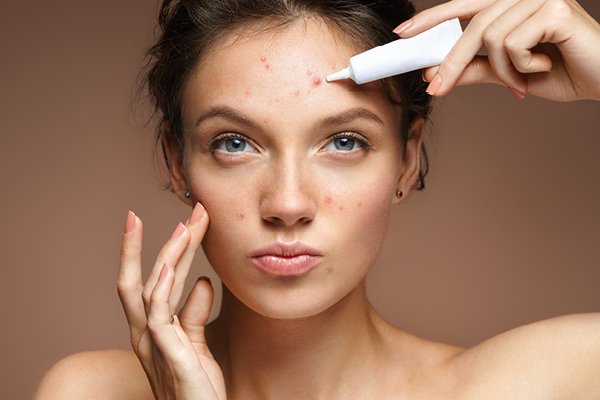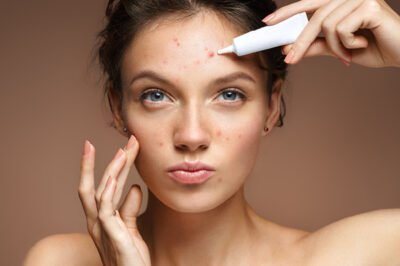
Acne, a prevalent skin condition, can manifest in various forms such as blackheads, whiteheads, and pimples, impacting individuals across all age groups. Despite a plethora of acne-reducing creams and treatments available on the market, many find their efforts to clear their skin futile, as the acne either persists or recurs. This frustrating experience often indicates that the underlying causes of acne extend beyond surface-level issues, requiring a deeper understanding and approach to treatment.
Dr. Rinky Kapoor, a distinguished dermatologist, sheds light on several key factors that contribute to stubborn acne, emphasizing the need to address these root causes for effective and lasting solutions. Among these factors, diet plays a significant role. Foods with a high-glycemic index, such as oily snacks, chocolates, and sugary treats, can spike insulin levels, leading to increased sebum production and the development of acne. Similarly, foods high in saturated fats can exacerbate acne symptoms, highlighting the impact of dietary choices on skin health.
Stress, too, significantly influences acne formation. In today’s fast-paced world, where stress has become a commonality, its negative impact on the body can’t be overlooked. Stress not only disrupts hormonal balance, particularly cortisol levels but also weakens the skin barrier and contributes to inflammation, thereby facilitating acne development.
Moreover, Dr. Kapoor points out that improper skincare routines, including the use of comedogenic products and harsh exfoliants, can strip the skin of its natural oils and damage its protective barrier, allowing bacteria to infiltrate and cause acne. Failure to remove makeup properly can also impede acne healing, underscoring the importance of a suitable skincare regimen tailored to one’s skin type.
Hormonal imbalances, particularly involving androgens and conditions such as polycystic ovarian syndrome (PCOS), present another challenge. These imbalances can lead to acne that is resistant to topical treatments, necessitating a more comprehensive approach to management. Additionally, thyroid disorders, which affect metabolism and other bodily functions, can alter cell turnover on the skin, contributing to acne formation and delayed skin healing.
For those struggling with persistent acne, Dr. Kapoor suggests exploring alternative treatments beyond topical creams. These include chemical peels, laser treatments, and oral medications, which can offer more targeted and effective solutions. Consulting a dermatologist is crucial for identifying the underlying cause of acne and receiving personalized treatment recommendations.
In summary, tackling stubborn acne requires a holistic approach that goes beyond surface-level treatments. By understanding and addressing the underlying factors, individuals can achieve clearer, healthier skin. Remember, effective acne management starts with recognizing that the solution lies not just in a cream but in a comprehensive understanding of one’s health and lifestyle.








































Leave a Reply